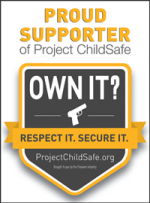If Rhode stands relatively anonymously on the cusp of American Olympic history, that’s because her sport is less popular than swimming, and lots more controversial. She shoots a shotgun. At the London Games, which started days after a mass shooting at a movie theater in Colorado, Rhode and other Team USA shooters received anonymous online death threats, requiring additional security.Kelliker also writes that the very thing that may make this particular Olympic sport "controversial" also provides a base of support. He wrote that when Rhode visits outdoor retailer Cabela's, which is one of her sponsors, she is met by fans asking for her autograph. Helliker also reported that shooters have won more gold medals for the U.S. than has every other type of Summer Olympics athlete except for swimmers and track-and-field members:
“Our sport has an unfortunate stigma attached to it,” says Rhode, a 36-year-old Southern Californian. Following December’s deadly shooting rampage in nearby San Bernardino, the media sought out comment from Rhode, who expressed sorrow for the victims and support for gun rights. Why should that crime have placed her in the spotlight? she asks: “You don’t hear them asking Nascar drivers to comment on crimes involving cars.”
In the total medal count, shooters rank sixth in the U.S. behind boxing, wrestling, diving, swimming and track and field. In Rio, the sport’s governing body, USA Shooting, hopes to top its performance in London, where it won a bronze and three gold medals.Not mentioned in the article but of note to fans of the shooting sports, are the expanded viewing options now available for the Olympics. Gone are the days when your only option was watching it on broadcast TV. Besides the numerous cable networks now owned by NBC where they can show more events, there is the mobile app where interested fans can watch sports not normally shown on television, on their phones or tablets as well as online on a PC.
The article also talked about some of the obstacles some shooters face in competing:
Also, some states have enacted assault-weapon restrictions that encompass a highly specialized 22-caliber Olympics sport pistol, making it impossible for competitors to train, let alone compete, in those states. Nathalia Granados, a former Colombian shooter who last year became an American citizen, now lives with her husband in New York, where she can’t own the pistol she needs to compete in the 25-meter event. Little wonder that she has failed to make the U.S. Olympic team headed to Rio, she says. “If a tennis player doesn’t have their racket, it wouldn’t be the same as training with their racket,” she says.This reference reminded me that in 2000, California legislator Ron Perata invited a competitive shooter to move out of California when the state's "assault weapon" ban prevented her from owning the .22 pistol she needed for competition.
When talking about how sponsors for the shooters outside the shooting and outdoor community are hard to come by, the article captured the positive imagine these athletes have on the sport:
Outside the hunting, firearms and outdoors industries, sponsors of shooting are hard to come by, says Mitchell, the USA Shooting executive director. Executives of other companies will say, “‘I’ll be glad to cut you a check myself, but my firm, I can’t do that,’” says Mitchell.Check out the entire article.
Sports agent Patrick Quinn says, “My personal views on guns skewed to the negative” until a friend at Nike Inc. recommended that he represent Rhode. “Working with Kim and seeing what good people shooters are has made me look differently at the whole issue of guns,” says Quinn, a partner at Chicago Sports & Entertainment Partners. The problem, he says, “isn’t necessarily the guns.”
Quinn says it doesn’t bother him that Rhode is a hard sell to companies outside the shooting industry. “It’s a giant industry, and she’s a big fish in that pond,” he says.








No comments:
Post a Comment